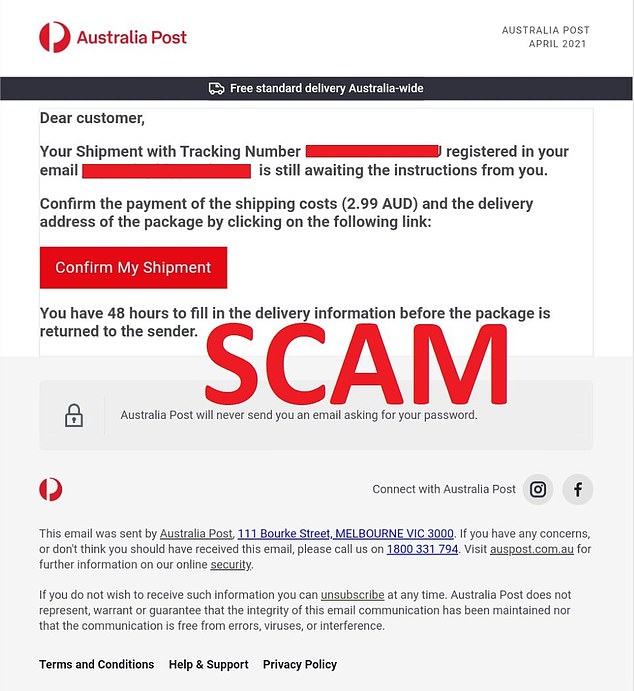In an age where digital communication has become ubiquitous, the convenience of receiving emails from courier services regarding package deliveries has become commonplace. However, with this convenience comes the risk of falling victim to scams. Victoria Police has issued a stern warning to Australians about a prevalent scam involving fake emails purporting to be from Australia Post.
These deceptive emails, crafted to appear genuine, often contain urgent messages regarding package deliveries or missed delivery attempts. They may prompt recipients to click on links or download attachments under the guise of tracking their parcels or resolving delivery issues. However, the true intent behind these emails is far more sinister.
Australia Post, a reputable postal service, has clarified that they will never initiate contact via unsolicited emails, text messages, or phone calls to request sensitive personal or financial information. This includes passwords, credit card details, or account information. Furthermore, they will never demand payments via these channels.
The modus operandi of these scammers relies heavily on social engineering tactics designed to instill a sense of urgency or fear in recipients, coercing them into divulging confidential information or making impulsive decisions. The consequences of falling prey to such scams can be dire, ranging from financial loss to identity theft and fraud.
To safeguard against falling victim to these fraudulent schemes, it is imperative for individuals to exercise caution and skepticism when encountering unsolicited emails, especially those requesting sensitive information or prompting immediate action. Here are some essential tips to help Australians protect themselves:
- Verify the Sender: Scrutinize the sender’s email address carefully. Legitimate emails from Australia Post will typically originate from official domains such as “@auspost.com.au”. Be wary of emails from unfamiliar or suspicious addresses.
- Hover Before You Click: Before clicking on any links embedded in emails, hover your mouse cursor over them to preview the destination URL. If the link appears dubious or leads to an unfamiliar website, refrain from clicking on it.
- Stay Informed: Keep abreast of the latest scam alerts and advisories issued by law enforcement agencies and reputable organizations. Awareness is key to identifying and avoiding potential threats.
- Exercise Caution with Attachments: Avoid downloading attachments from unsolicited emails, particularly those that prompt you to enable macros or run executable files. These attachments could contain malware designed to compromise your device or steal sensitive information.
- Contact the Source Directly: If you receive an email that appears suspicious, independently verify its authenticity by contacting the purported sender directly through official channels. Do not use contact information provided in the suspicious email.
- Report Suspicious Activity: If you believe you have received a fraudulent email or fallen victim to a scam, report it to the relevant authorities immediately. Prompt reporting can help prevent further exploitation of unsuspecting individuals.
By remaining vigilant and adopting proactive measures to protect personal information and financial assets, Australians can thwart the efforts of cybercriminals seeking to exploit them through deceptive tactics. Remember, when in doubt, it’s always better to err on the side of caution than to risk falling victim to a scam.


